An Odyssey in the Philippines
Me, Love and Other Catastrophes
Fresh from a break-up, Marco Buch sets out on an emotional rollercoaster ride in the Philippines, meeting dancing killers and tattooed girls, and experimenting with Tinder.
Johannes Klaus goes travelling in South Africa’s Garden of Eden, Kruger National Park. But it’s no paradise: man is a wild and deadly animal.
When I look back at my life until now – as I’m about to do – my encounters with animals draw a very clear picture of my weaknesses.
Maybe it was predestined, and there’s nothing I can do about it. I was born into a family with many talents, but a way with animals wasn’t one of them.
It’s not that we didn’t have any pets! Even before I could walk, my older siblings’ charges generally met with tragic ends after their brief lives. After giving them to a farmer to look after while we were away on holiday, all that was left of my big sister’s three rabbits were the pelts, hanging from a line in his farmyard (my father argues vehemently to this day that he did not agree to this rather unconventional interpretation of hospitality). The fish in our new aquarium quickly worked out how to play very dead.
And Hansi, my sister Steffi’s manic-depressive canary, hanged himself in despair from the bars of his cage.
I myself was desperate for a talking parrot who’d stand by me through thick and thin, but sadly it was not to be. Instead my parents gave me first one, then another cockatiel. I called the first one Hugo and the second Adelheid. Although it later turned out that Hugo was probably a girl and Adelheid a boy, the two of them never got around to laying any eggs. Instead they enjoyed snacking on my books and shitting on my head. I liked them.
One fine summer’s day I put the cage out on the balcony rail, as I often did, so that my two feathered friends could get a bit of sun and fresh air. I meant well, you might say. But then, as I’m sure you’ve already guessed, disaster struck: when I came back the cage was lying on the floor, broken in two. They’d both scarpered, never to be seen again.
I could keep going, telling you stories of ailing mice, gasping guineapigs and other abortive attempts at pet ownership. Of the creeping sense of regret that, after my initial enthusiasm, grew stronger year on year as I stared at the animals at the zoo.
But then I’d be getting too far off topic, and somehow I’ve got to find my way back to the subject of this article: a safari.
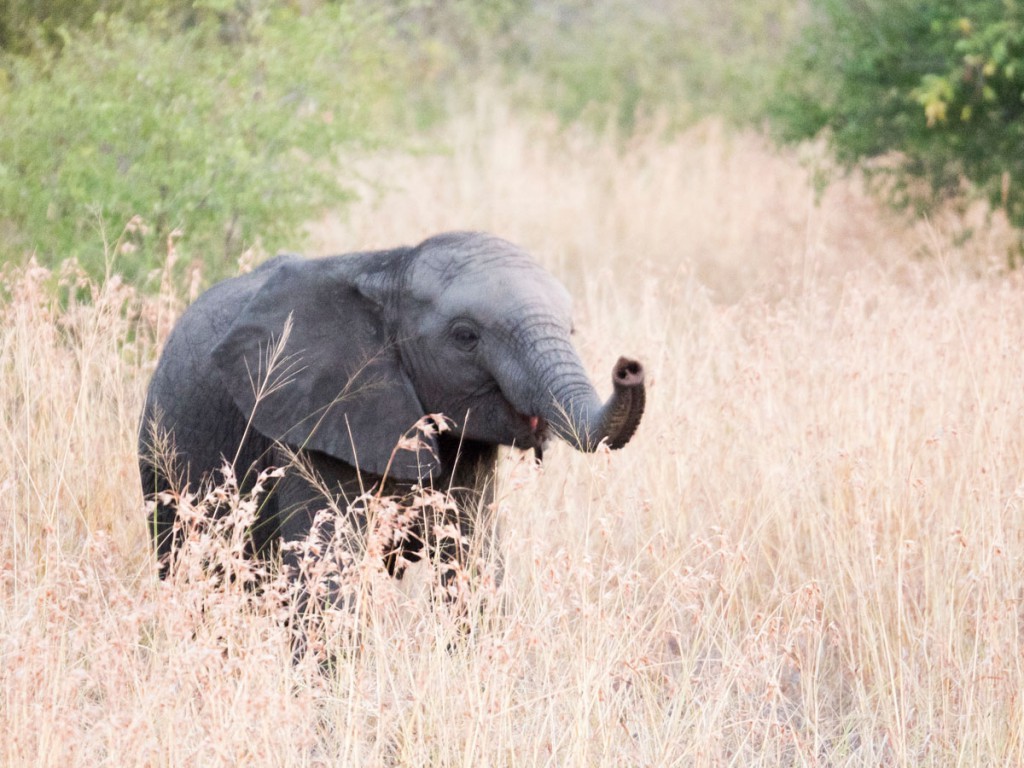
It may be that an elephant – to pluck one of the wild animals in this story out of the air at random – has little in common with an ordinary pet, let’s say a goldfish, in terms of care. The same goes for a warthog. Or a crocodile. They don’t want you to feed them or cuddle them. They just do their thing.
I get that.
I’m giving my relationship with animals one last chance – and not a small one! I’m talking about nothing less than big game. Giraffes. Zebras. Enormous spiders. I’m heading into the bush – in South Africa.
My eyes are firmly fixed on my goal: a safari in the Singita area of Kruger National Park.
Whether it sorts out my issues with animals remains to be seen.
* * *
So what the hell is this ‘Big Five’?
The story of an obsession.
Dear reader, I know what you’ve been asking yourself all this time – what you always ask yourself whenever your well-travelled acquaintance starts banging on unasked about his adventures in Africa, which he has somehow managed to survive unscathed once again. That’s right: the guy who calls it a ‘game drive’ rather than a safari, who loves explaining the difference between a field guide and a ranger, and who’s bubbling with simple solutions to ‘Africa’s problems’ once his tongue’s been loosened by a glass of wine. In other words: me. You’re asking:
What the hell is this ‘Big Five’?
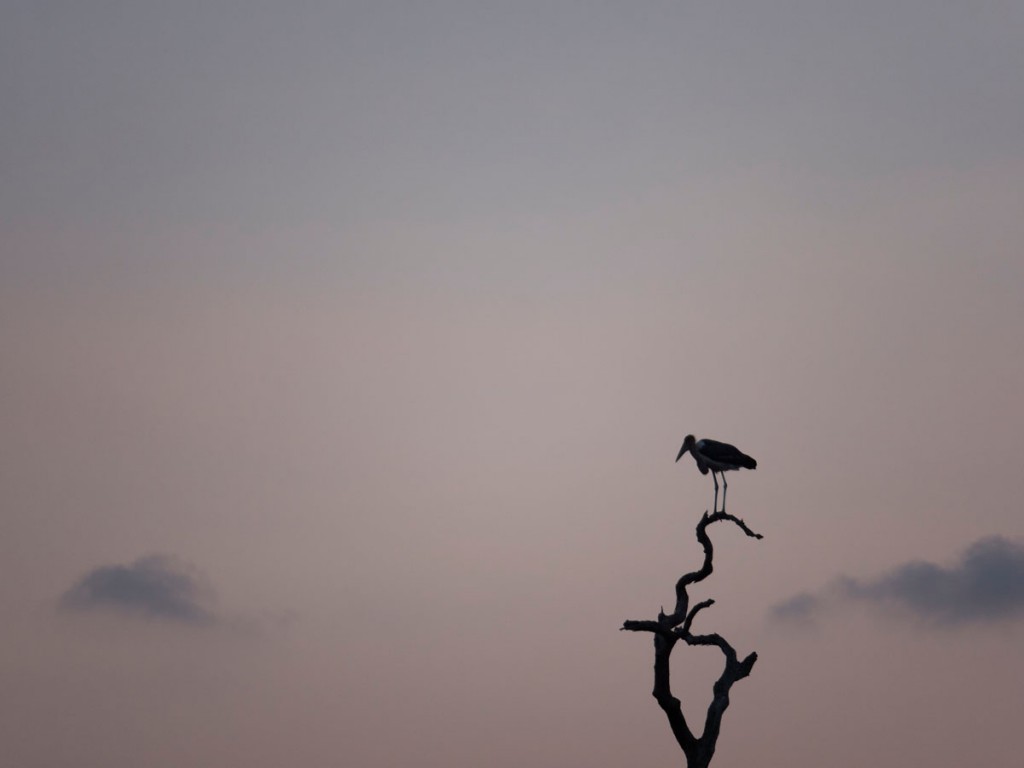
It’s the year 1910 AD. All Africa is under European rule… all Africa? Yep, the whole of Africa (apart from Ethiopia). One of the colonial masters’ favourite hobbies is going hunting in the African wilderness with lots of porters and rifles. And ice for the G&Ts at sundown.
They called these expeditions safaris, as it’s the Swahili word for journey. Great honour and renown awaited those who took on (and took down) the most dangerous creatures in the savannah: the elephant, the rhinoceros, the buffalo, the lion and the leopard. Size played a part in the selection process, of course, but most of all was excitement.
Shooting a giant hippopotamus, for instance, as it stands in the river yawning every other minute isn’t really much of a sporting achievement.
Why did they hit on exactly these five creatures, and not, say, the equally interesting cheetah? Neither I nor Wikipedia has any idea.
At some point in the last few decades killing everything in Africa that moved fell out of fashion, and the big game hunts became largely bloodless excursions for tourists, who, despite still looking pretty frightening with their giant lenses, are generally harmless (to animals).
What’s remained is the obsession with the Big Five. And the G&Ts, which are served at sundown on evening game drives.
Of course, such big game hunts still exist: for a lot of money, small people can kill big animals. There are specific areas where particular species are acceptable to shoot. It’s not a complete outrage, as there are sound ecological arguments for doing so – but I still find the thought extremely bizarre.
Why would I want to kill this extraordinarily elegant leopard slinking through the grass?
* * *
It’s all kicking off! Big game, here I come!
When it comes to safaris, probably the most famous location is the enormous Kruger National Park in western South Africa. There are a few areas of the park that can be leased to private lodges – for no small amount of money. These concessions are then made available for the exclusive use of the lodges’ guests.
The Singita Game Reserve Lebombo is in the southern part of Kruger National Park, in exactly such a concession. Only five kilometres away, as the crow flies, is a long fence that separates South Africa from Mozambique. A handful of ascetically luxurious lodges sit on a hillside at a generous distance from each other. Thirty metres further down, hippos splash around in the middle of a small river. Ahead of them the surface of the water is broken as a crocodile raises its head, on the lookout for breakfast. On the other bank are a few impalas, trying not to get eaten as they take a drink. The sun rises.
I could sit here forever, soaking up this performance and the magnificent soundtrack of the bush. I’m sitting on my large balcony, a coffee in one hand and my camera in the other. This where I want to stay.
But I’m not staying – the game drive’s starting at half five! Although, to be honest, I’m not sure anything could top this morning.
Ok guys. I’m impressed. Spellbound. Love-struck. I had no idea it would be like this: the epic landscape, the powerful animals, their heart-warming young. I’m scarcely two metres from a pride of lions, gazing in astonishment at baby elephants gambolling around, and breathlessly following a leopard on the prowl.
From time to time I feel as if I’ve been thrust into the primeval, dinosaur-filled world of Jurassic Park (at the beginning of the film, when everything’s still peaceful and the resurrected dinosaurs are cosily grazing and hunting among themselves).
In the film, it doesn’t take long before everything goes to hell in a handbasket. And here in Kruger National Park, disaster is also looming.
Man is a wild and deadly animal.
* * *
Our tracker Charles leaps from his seat at the front of our Land Rover. He ties a white cloth around his right upper arm and reaches for his gun. Then he disappears into the bush.
‘Last year one of our guides was nearly shot dead by the military. They thought he was a poacher,’ explains our field guide Enos. ‘That’s why we started wearing a white ribbon around our arms when we’re on foot, to show we’re allowed to be here.’
‘What if the poachers do that too?’ I ask.
‘Then we’ll change the colour.’
In the Far East there are people who must be in the depths of despair. They can’t get it up, and have hit on a solution in the form of something with exceptional staying-power: the mighty, upright horn of the rhinoceros. It would be funny if it didn’t have such terrible consequences.
They also believe that the powdered horn cures fever and cancer, and they’re willing to pay a king’s ransom to obtain it, paying up to 80,000 US dollars per kilogram – it’s more expensive than gold.
A poacher will get 3,000 euros for a whole horn of 1 to 10 kilos in weight, an unimaginable sum for many people. In Kruger National Park, rhinos are threatened mainly by poachers from Mozambique. More than half the population of Mozambique lives in complete poverty – and a single horn can change a poacher’s life. In 2013, more than 1,000 rhinos were killed in South Africa alone, in 2014 over 1,200. The military helps the rangers crack down on poaching, but Kruger is almost the size of New Jersey, and the fence between Mozambique and South Africa is more decoration than deterrent.
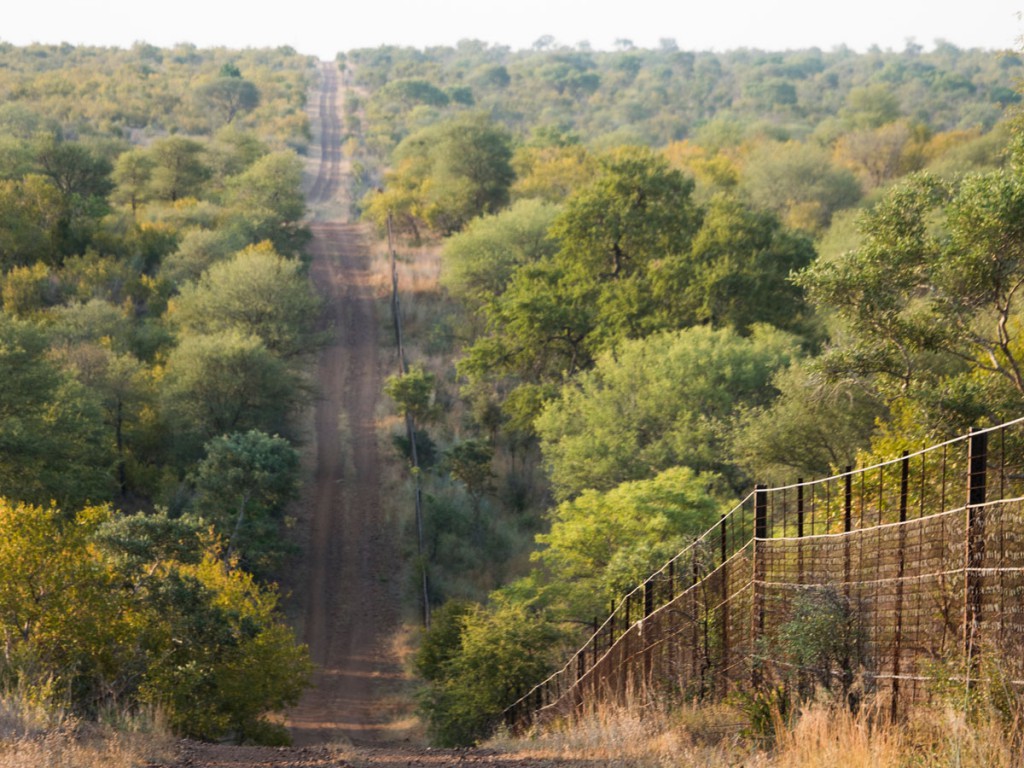
Even within the Singita concession, rhinos have become scarce.
‘A few years ago, you’d definitely have seen rhinos here,’ Enos tells us. ‘Now it’s very hit and miss – and if we do glimpse one, they run away the moment they catch wind of us. The rhinos know why. Sadly, their fear is justified.’
He and Charles are doing their best to educate people, going into schools in South Africa and showing children what rhinos mean for all of them. ‘Tourists come here to see the rhinoceroses, and tourism is extremely important to the local area in all sorts of ways – obviously for guides and staff at the lodges, but also for many others who profit indirectly.’
We pass a herd of buffalo. The mighty creatures don’t look like they’d suffer fools gladly. Number four of the Big Five! We’re gripped with the desire to complete the set.
In this video you can see why you shouldn’t mess with buffaloes (see minute 1:40 onwards):
But one animal remains elusive: the rhinoceros.
* * *
All of a sudden, Charles darts back out of the bush. He’s found a trail. We need to get out of the Land Rover.
‘Stay behind me,’ says Enos, explaining the rules. ‘Always stay in a line, and be very quiet. We have to make a wide detour, because rhinos have an excellent sense of smell – we’ve got to approach it from upwind. Their sight, on the other hand, is remarkably bad.’
Man, this is so exciting! When you’re travelling through the park in a car you’re quite safe, even though you’re inches away from lions, elephants and other wild animals. They just see a big car-monster, and pay it little heed.
On foot, however, it’s a different story!
Enos loads his gun with a few of the giant rounds hanging on his belt (‘better safe than sorry,’ he murmurs), and then we’re off. In single file we walk into the grassy savannah, following tracks I can’t see. Again and again we’re brought to a halt by a hand signal, as our tracker Charles checks the direction of the wind and adjusts our direction. A small herd of zebras is standing to our left, making the process that much more difficult, since the animals warn each other of impending danger with cries of alarm. Slowly, we walk through the waist-high grass.
Thorny acacia trees and scrubby bushes block our view, but we’re told to kneel down. And then I spot them! Two rhinoceroses grazing calmly about fifty metres away.
They look so peaceful, so good-natured and a little dopey – if it wasn’t for the enormous horn, decorated with a smaller one immediately above it. They haven’t seen us yet. In fact, they’re actually coming closer!
And then! The wind changes a fraction and one of them raises its head, snuffling, then freezes for a moment before taking to its heels. The other one takes off too (do we really smell that bad?) and soon they’re hidden behind a group of acacias, the zebras sprinting hysterically behind them.
Inspired, we start heading back. We did it: we got the full set.
But it’s disappointing to see how frightened the rhinos are – and they’re completely justified! Every year, thousands of them are slaughtered in the name of Big Business. If it continues, it won’t be long before we’re seeking them in vain: The Last Unicorn.
Me and animals. Yeah, I like them. They may not be all that fond of me, but I like them. Most of all when they’re free, and left to merrily do their thing.
So long as they don’t eat me, it’s all good.
I’ll simply leave them where they belong, and keep visiting them. Goodbye, rhinoceros, and see you soon!
And by the way: later we found a lot of happy rhinos in a small, fenced-in national park in Swaziland. You should come and check it out!
* * *
Accommodation
Singita operates 12 lodges and camps, each an absolutely stunning experience, in five regions across three countries in Africa. If you have the money: It’s worth it!
SANParks manages the national parks of South-Africa. It offers many accommodation possibilities in Kruger NP, from simple camp-sites to luxury bungalows.
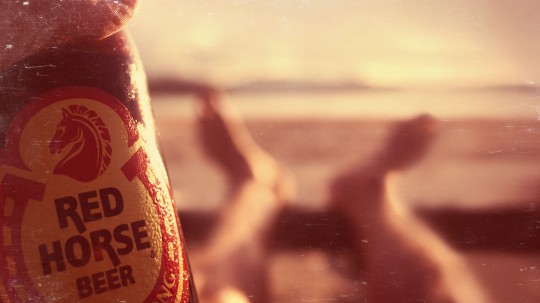
Fresh from a break-up, Marco Buch sets out on an emotional rollercoaster ride in the Philippines, meeting dancing killers and tattooed girls, and experimenting with Tinder.
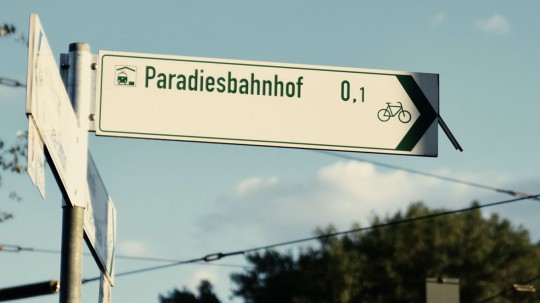
Early in 2006, the headline of the British newspaper The Economist already read “If you seek paradise, go to Jena”. In Germany, however, people aren’t so sure about that. Wrongly so, thinks Ariane Kovac.
Ruanda Mister Guhonda und die letzten GorillasElfenbeinküste Die GeisterstadtUganda The Long Road to WaterKongo Crossing CongoSouth Africa: Kruger NP The Big FiveSomalia Welcome to Somalia
USA: Florida 100 miles on the tracks of the CalusaUSA Arm, aber frei – als Hobo durch AmerikaBrasilien Rio de JaneiroArgentinien Aconcagua, 6962 MeterPeru Zwischen Himmel und ErdeUSA: Utah WestworldKuba Drüben, in der anderen WeltKaribik TraumschiffMexiko Comeback mit Backpack in MexikoUSA: Alaska Big RiverNicaragua The Magic of the Corn IslandsUSA: Alaska Alone in the WildernessUSA: Colorado Rocky Mountain High
Antarctic Happy Antarctica
Iran Hochzeit im IranChina Urlaub im ÜberwachungsstaatKatar Fata Morgana Allgäu Orient RallyeMongolei Gekritzel im Sand gegen die große EinsamkeitSyrien Willkommen in SyrienUsbekistan Ein Meer aus SandIndonesien Meine Tage als BuleJordanien JungeBurma Nachtzug nach BaganKirgisistan Die Flügel des MenschenBurma Goldene ZeitenRussland Couchsurfing in RussiaThailand Der Pfad der ErleuchtungAfghanistan KabulChina K2Pakistan Hitchhiking Through Pakistan On the Road of LifePhilippinen Me, Love and Other CatastrophesIran Kids of TehranBangladesh Life and Death in the Empire of the TigerIran Couchsurfing in IranBurma Road to MandalayVietnam Lost in Vietnam
Spanien Ungezähmte BergeFrankreich Yoga und SurfenGermany Ein Esel zum PferdestehlenAustria Der Geschmack des WaldesGermany Vier Räder, Küche, BadFinnland Sehnsucht nach SchneeGermany Mehr Pott geht nichtAustria Mach mal langsamFinnland Hoch in den NordenRumänien In RuinenGermany Grenzgänge durch BrandenburgGermany Towards WinterGermany Das blaue ParadiesSchweiz Zur grünen StundeNorwegen The Rest is Silence Germany ZauberlandSpanien Mrs. Müller Drops OutNorwegen Ultimate FreedomSpanien Into the Heart of the PyreneesFinnland Wandering CosmosGermany The Bundesliga village Germany Under The DomePoland Warszawa rzucająca na kolana On the Road of LifeGermany Munich: Oh well, I live here. So?Germany Jena: Next Stop ParadiseGermany Bochum: Steel HeartbeatsTürkei Arrival in Istanbul Italy Dear Dolomites, I'm BackTürkei Floodlights in the ForestCroatia Ambuscade at the BorderGermany The Bavarian OlympicsAustria Across (Goat) CountryLatvia Somewhere up thereGermany The Big GoalGermany My Loveletter to LangeoogGermany The End of a Journey
Auf der Rückseite des GlobusNew Zealand Speed Dating with New Zealand
Welt Six Pairs of Shoes
Germany Ein Esel zum PferdestehlenGermany Vier Räder, Küche, Bad Freiheit auf vier RädernChina Urlaub im ÜberwachungsstaatUSA Arm, aber frei – als Hobo durch AmerikaKuba Drüben, in der anderen Welt Auf der Rückseite des GlobusFinnland Hoch in den NordenSyrien Willkommen in SyrienUsbekistan Ein Meer aus SandElfenbeinküste Die GeisterstadtBurma Goldene ZeitenRussland Couchsurfing in RussiaGermany Das blaue ParadiesSchweiz Zur grünen StundeNicaragua The Magic of the Corn IslandsKongo Crossing CongoNorwegen Ultimate FreedomSpanien Into the Heart of the Pyrenees On the Road of LifePhilippinen Me, Love and Other CatastrophesTürkei Arrival in Istanbul Türkei Floodlights in the ForestCroatia Ambuscade at the BorderAustria Across (Goat) CountryGermany The Big GoalNew Zealand Speed Dating with New ZealandAntarctic Happy AntarcticaBurma Road to MandalayVietnam Lost in Vietnam
Spanien Ungezähmte BergeGrönland Gefangen im EisIran Hochzeit im IranUSA: Florida 100 miles on the tracks of the CalusaBrasilien Rio de JaneiroArgentinien Aconcagua, 6962 MeterPeru Zwischen Himmel und ErdeUSA: Utah Westworld Allgäu Orient RallyeFinnland Sehnsucht nach SchneeRuanda Mister Guhonda und die letzten GorillasMongolei Gekritzel im Sand gegen die große EinsamkeitRumänien In RuinenJordanien JungeUSA: Alaska Big RiverUganda The Long Road to WaterAfghanistan KabulNorwegen The Rest is Silence Germany Under The DomeChina K2USA: Alaska Alone in the WildernessPakistan Hitchhiking Through PakistanIran Kids of TehranUSA: Colorado Rocky Mountain HighBangladesh Life and Death in the Empire of the TigerIran Couchsurfing in IranSomalia Welcome to Somalia
Frankreich Yoga und SurfenAustria Der Geschmack des WaldesKatar Fata MorganaKaribik TraumschiffGermany Mehr Pott geht nichtAustria Mach mal langsamIndonesien Meine Tage als BuleGermany Grenzgänge durch BrandenburgBurma Nachtzug nach BaganKirgisistan Die Flügel des MenschenMexiko Comeback mit Backpack in MexikoGermany Towards WinterThailand Der Pfad der ErleuchtungWelt Six Pairs of ShoesGermany ZauberlandSpanien Mrs. Müller Drops OutFinnland Wandering CosmosGermany The Bundesliga village Poland Warszawa rzucająca na kolanaGermany Munich: Oh well, I live here. So?Germany Jena: Next Stop ParadiseGermany Bochum: Steel HeartbeatsItaly Dear Dolomites, I'm BackGermany The Bavarian OlympicsLatvia Somewhere up thereSouth Africa: Kruger NP The Big FiveGermany My Loveletter to LangeoogGermany The End of a Journey
Readers Mail
Tell us what you think
Ulla on 26. Juli 2015
Bin absolut fasziniert…!! Da ist ein echter Künstler am Werk: super lebendig und humorvoll geschrieben, herrliche Fotos und ein schier atemberaubend spannender Film….!!!
Ja, Johannes, du magst Tiere, und ich glaube, sie mögen dich…aber bitte nicht zum fressen gern…. Puh, mir ist richtig heiss geworden…!!!!
Johannes Klaus on 29. Juli 2015
Dankeschön! :)
HJK on 26. Juli 2015
Ich bin total überwältigt von dem Erleben der big five. Wunderbar und feinfühlig gestaltet – großen Respekt – ich träume heute Nacht von Deinen Fährten und würde gerne mal Dein Kofferträger – oder ein Rucksack macht´s auch – sein. Herzlich weiter so eindrucksvolle Abenteuer und danke, dass wir daran so teilnehmen dürfen. HJK.
Johannes Klaus on 29. Juli 2015
Vielen Dank!
AK on 29. Juli 2015
Wollte gerade ‚The Big Five‘ lesen. Die ersten Zeilen des Newsletters hatten mein Interesse geweckt. Wenig Text, große Bilder und Co. haben mich jedoch so abgeschreckt, dass ich darauf verzichtet habe weiterzulesen. Warum nur zählen Bilder mehr als Inhalte? Außerdem nervt die akustische Beschallung und das Handling der Website für den User. Schade, denn der Autor hat eindeutig Talent.
Johannes Klaus on 29. Juli 2015
Oh wie schade! Aber Danke für das Lob.
Norah on 29. Juli 2015
Sei froh, hast du damals keinen Papagei gekriegt, die können älter werden als Menschen…. Der würde dir also heute & die nächsten Jahrzehnte immer noch nachplappern, falls er dir nicht auch weggeflogen wäre… ;)
Grossartige Episode! Du hast es geschafft mein Fernweh zu wecken und dass ich trotz Angst vor grossen Tieren nach Südafrika will. Jetzt. Sofort. Ich bin dann mal weg….
Johannes Klaus on 29. Juli 2015
Vielen Dank! Auf nach Südafrika! ;)
Lene on 30. Juli 2015
@AK: Warum hier Bilder mehr zählen als Inhalte? Das stimmt doch so überhaupt nicht. Beides ist wichtig, deshalb ja auch MULTImedial.
@Johannes: Ich finde die Episode super und will auch auf Safariiiiii!!! (Übrigens habe ich bei deiner Erzählung der unglücklichen Kleintiere schallend gelacht! Danke!) :-)
Johannes Klaus on 30. Juli 2015
Das freut mich, Lene!
Axel on 30. Juli 2015
seeeeehr cool gemacht, Johannes!! lG
Johannes Klaus on 30. Juli 2015
Danke!!
Kirsten on 23. August 2015
Großartige Episode mit umwerfenden Bildern und Filmen und witzig-informativen Texten! WEITERMACHEN!!
Johannes Klaus on 27. August 2015
Vielen Dank!!
Nina on 27. September 2015
Meine neue Lieblingsepisode <3
Ganz toll!
Johannes Klaus on 27. September 2015
Vielen Dank :)
Julia on 20. September 2016
Toller Artikel! Da ich gerade selbst in Namibia unterwegs war kenn ich die Angst der Tiere nur zu gut. Hatte aber das Glück, auf einer Lodge zu übernachten, in welcher der Besitzer ein derartiges Verhältnis zu den Tieren hat, das ich dem Nashorn hinterm Ohr kraulen konnte und dieses das auch noch mehr als genoss :-D
Lodges vom Projekt #savethecheetah sind auch noch zu empfehlen – Katzenkuscheln mit diesen Riesenkatzen kann auch was!
.. viel Spaß auf den hoffentlich weiteren Reisen.
Julia
Johannes Klaus on 21. September 2016
Danke, Julia, für die Tipps! Dir auch weiterhin tolle Reisen!
Michaela on 22. April 2017
Ein toll illustrierter Artikel, der einfach Lust macht auf Safari! Kompliment!
Elke on 15. Juli 2019
Danke :)